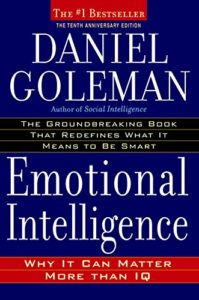The journey for most engineers often begins with a lot of good grades in math. That leads to the ability to comprehend and solve problems. And that leads to a lot of people looking at them and thinking, “Wow, they are smart.”
Sometimes, though, a lot of people also look at them and think, “But they aren’t people smart.”
Years ago, as a junior engineer, I worked for a man who was one of the most brilliant engineers – one of the most brilliant people – I‘ve ever known. He could see electrical circuitry in the air before him. He could design whole systems and predict problems before they arose. He understood systems in a way I could only hope to one day. Many times, I remember thinking, “Why isn’t Doug (not his real name) in charge around here?” I even overheard Doug echo my thoughts with statements like, “They are idiots. I should be running this show.”
It took a few years for me to understand that his answers were absolutes. They were mathematical and precise. But they did not account for the human factor.
Enter Emotional Intelligence

Emotional Intelligence by Daniel Goleman
I heard whispers that Doug lacked people skills. For a while, I didn’t understand what they meant. Probably because I lacked people skills, too. Now I understand that it was beyond just people skills. Doug lacked emotional intelligence, which was the one thing that could have taken him from engineer extraordinaire to a leader of extraordinary engineering teams.
As described by author Daniel Goleman, there are five key elements of emotional intelligence:
- Self-awareness – enables people to understand, accept, and develop their strengths, weaknesses, and desires
- Self-regulation – bestows the ability to control impulses and prevent overreactions
- Motivation – provides the two-fold ability of self-drive towards goals and the ability to understand and help motivate others toward their goals
- Empathy – brings awareness and consideration of the emotions of other people
- Social Skills – cover a wide range of interpersonal skills which enable a person to work with a team, this is, of course, essential for engineers as few projects can be completed alone
Even though Doug was extremely smart (intelligence quotient smart,) he didn’t climb the ladder because he lacked emotional smarts. According to Goleman (“What Makes a Leader?” in the Harvard Business Review, January 2004,) emotional intelligence accounts for nearly 90% of career ladder success.
Improving Your Emotional Intelligence
The importance of emotional intelligence cannot be overstated. Goleman contends that “CEOs are hired for their intellect and business expertise – and fired for a lack of emotional intelligence.” I think it’s similar in our field. Engineers are hired for their intellect and technical expertise. They are fired – or at least not promoted – for their lack of emotional intelligence.
The good news is that emotional intelligence (sometimes written as EQ or EI) can be improved. You’re not born with a certain amount. Rather than being born with it, Goleman’s research concludes that people are born with the ability to learn emotional intelligence.
In the coming articles, we’ll explore the attributes of emotional intelligence and how each can be developed.
Final Takeaway
I will always be thankful to a former boss, Charlie (his real name), who demonstrated immense emotional intelligence in a situation when I had demonstrated none. That interaction could easily have ended with me being fired. Instead, Charlie asked, “Are you alright?” He spent the next couple of years showing me how to be alright by mentoring me in two areas: servant leadership and emotional intelligence.
It’s twenty years later and I continue to work on both to this day because of the profound difference they’ve made in my career and my life outside of work.
Image by Mohamed Hassan


So, so true, Tracy. I have known many “Dougs”, and lament the fact that they could have been so much more. As you and I have discussed, as individuals with an inclination for math and science we tend to be painfully shy and introverted. We’ve got to build the EQ as much as the IQ.
The number one thing I tell young prospective engineers who come to me for advice is to “broaden your social horizons.” Join a club, try karaoke, give Toastmasters a shot–anything that pushes you outside your comfort zone. It wasn’t until I stopped spending the weekend in front of my computer that I learned what empathy, teamwork, and meaningful conversation were truly like.
Keep up the great work, and thanks for sharing!
Thanks Bobby!
EQ is the perfect place to start to develop soft skills.
Another EQ guy, Travis Bradberry wrote an EQ workbook. They provide a survey and it will evaluate where you are strong in EQ and where to focus to improve.
Here is a link to the book: https://www.amazon.com/Emotional-Intelligence-2-0-Travis-Bradberry/dp/0974320625
Thanks for the book recommendation, Julian! I’ll pick it up.